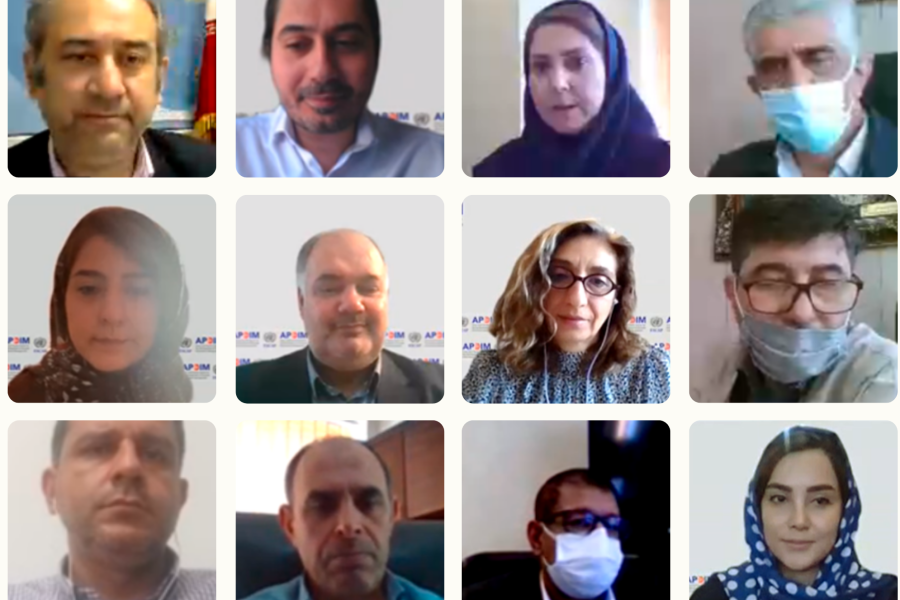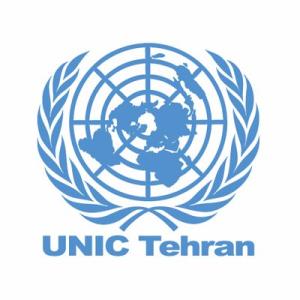Iran and APDIM explored potential for the expansion of regional cooperation to mitigate impact of sand and dust storms
19 May 2021
- TEHRAN, 19 May 2021 (UNIC) - The Government of the Islamic Republic of Iran and the Asian and Pacific Centre for the Development of Disaster Information Management (APDIM) convened an online meeting on sand and dust storms to discuss priority areas to address transboundary hazards and risks posed by sand and dust storms on 17 May 2021. The meeting explored potential for furthering strategic partnerships and sharing of expertise in this area - “APDIM is mandated to promote regional and inter-regional networking and serve as a repository for geospatial information on sand and dust storms,” said Ms. Letizia Rossano, Director of APDIM in her opening remarks at the meeting.

APDIM is conducting a regional risk assessment of sand and dust storms in Asia and the Pacific, focusing on risk in various sectors including agriculture, transport, energy, human health and the environment. The assessment will inform the development of a regional plan of action to combat sand and dust storms as a transboundary hazard. To address the gap in the damage and loss due to sand and dust storms in the region, APDIM developed the Guideline on Monitoring and Reporting the Impact of Sand and Dust Storms through the Sendai Framework Monitoring. The Guideline aims to support Member States to reflect the impact of sand and dust storms through the Sendai Framework Monitoring tool, which monitors progress towards the achievement of the global targets of the Sendai Framework for Disaster Risk Reduction 2015-2030. The tool provides an opportunity for Member states to collect and gather historical data on sand and dust storms and build an evidence base that can inform policy and medium and long-term decision-making.
Mr. Abbas Golriz, Head of Environment Affairs Department of the Ministry of Foreign Affairs of the Islamic Republic of Iran emphasized the urgency for collective efforts by the countries in the region through regional cooperation and mechanisms to address the risk of sand and dust storms and their negative impact. Mr. Golriz underscored ESCAP/APDIM mandate within the UN Coalition on Combating Sand and Dust Storms to co-lead the working group on Mediation and Regional Collaboration as part of its disaster risk reduction work and added that the best way to go forward was to create a regional mechanism with the participation of as many Asian and Pacific countries as possible via APDIM to mitigate the negative impact of sand and dust storms.
Mr. Mohammad Hadi Daryaei, Deputy Head of International Affairs Centre of Plan and Budget Organisation of the Islamic Republic of Iran reiterated the 2018 Asian Ministerial Conference on Disaster Risk Reduction outcome that identified sand, and dust storms as a new and emerging issue for some Asian and Pacific countries and underscored their transboundary nature. He highlighted that an organization such as APDIM is needed to facilitate the transfer of knowledge and information within the region.
Plan and Budget Organisation of the Islamic Republic of Iran informed the meeting that: As climate-related hazards are increasing, the Islamic Republic of Iran has given special attention to integrate and envisage risk management in high-level plans and policies including macro-economic development, environmental diplomacy, national disaster risk reduction strategy to have active participation of decision-makers in development planning. 5 per cent of the government of the Islamic Republic of Iran public budget has been allocated to disaster risk reduction and mitigation.
Dr. Ali Mohammad Tahmasebi, Chair of Iran’s National Committee for Combating Sand and Dust Storms said that the Government of Iran has taken all necessary measures to reduce the risk and negative impacts of sand and dust storms, but there is a need to have a close and constructive regional cooperation to reach tangible results in combating sand and dust storms. He emphasized the role of APDIM as an ESCAP regional institution, in expanding and supporting regional cooperation to combat sand and dust storms.
Ms. Mahtab Sadeghi Hariri, Climate Change and Sand and Dust Expert in the Department of Environment shared ongoing activities and Mr. Ahad Vazifeh, Head of National Centre for Climate and Drought Crisis Management of Iran Meteorological Organization presented the drought and dust monitoring and warning services of the Centre. Other officials in attendance who contributed to the discussions were from the Ministry of Foreign Affairs, Department of Environment, National Sand and Dust Storms Committee, Plan and Budget Organization and Iran Meteorological Organization.
***



